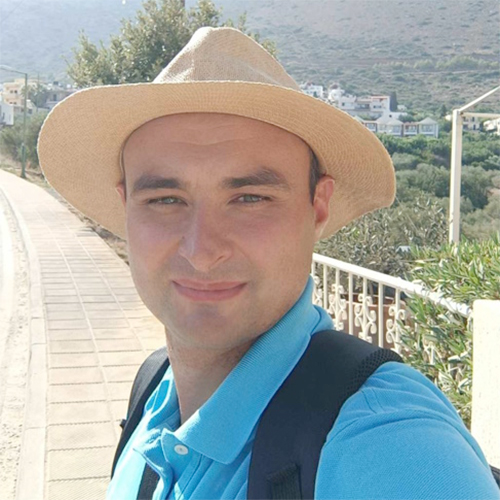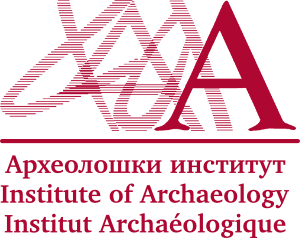
MA Milan Prodanović
Research Trainee
+381 11 3282 081;
+381 11 2637 191
Research interest:
MA Milan Prodanović specializes in the study of ancient, Greek and Roman archeology and Ancient History of the Balkans and the Eastern Mediterranean basin, with an emphasis on ancient Greek and Roman epigraphy, which he investigates from the angle of social and economic history, while he particularly specializes in the history of slavery. His area of interest lies in the connections between the urban Greco-Roman world and the internal territories of the pre-Roman and Roman era Balkans, as well as the integration of archaeological material into the historiography of Ancient History.
Education:
2023 – Doctoral Studies in Ancient History. Thesis topic: Slaves and freedmen in the Danubian Provinces of the Roman Empire, 1st century BCE – 4th century CE.
Faculty of Philosophy, University of Crete (Greece)
2021 – Master (Hons) in Ancient History.
Faculty of Philosophy, University of Crete (Greece)
Defended MA thesis: Peloponnesian War and Slavery.
2016 – BA (Hons) in Archaeology, Art History, and Greek Studies.
Faculty of Philosophy, University of Crete (Greece)
Employment:
2023 – Institute of Archaeology, Belgrade – Research Trainee
Languages: Greek, English, German
Scholarships, awards, and professional training:
2022 – First prize of the learned society “Menelaos Parlamas” for the best MA thesis at the Faculty of Philosophy, University of Crete (Greece), entitled: Peloponnesian War and Slavery.
2020 – Scholarship reserved for the best MA student of Ancient History dedicated in the memory Captain Fanis Konstantakopoulos.
2017 – Honorary award for MA seminar paper “The Church Fathers and Slavery in the Late Roman Empire” from the learned society “Menelaos Parlamas” in Heraklion, Greece.
2017 – University of Crete Scholarship for the best new student of the Faculty of Philosophy.
2014-15 – Erasmus+ exchange student at the Department of Ancient Studies, University of Salzburg, Austria.
2014 – Internship at the 25th Ephorate of Prehistoric and Classical Antiquities in Rethymnon in the spring of 2014 as an assistant trainee. Exceptional experience gained as an assistant at the Archaeological Museum of Rethymnon.
2013 – Excavation of Lower Palaeolithic layers at the site of Rhodaphnidia, Lesbos island in the northern Aegean.
2012 – Excavation in Ancient Eleutherna – Late Roman and Early Byzantine urban environment in central Crete.
2012 – 20th CIEPO Conference (International Committee for Pre-Ottoman and Ottoman Studies) in Rethymnon, Crete (27 June-1 July 2012). Member of the conference staff.
Engagement in academic projects:
2023- Institute of Mediterranean Studies in Rethymno, Greece. Engaged as a PhD candidate in Ancient History in the European Research Council – Advanced Grant project under the name SlaVEgents Enslaved persons in the making of societies and cultures in Western Eurasia and North Africa, 1000 BCE – 300 CE, as a specialist for slaves and freedmen of the Danube provinces of the Roman Empire .
2019-2022 – Employment as a historian-archivist of the Greek Civil War (1944-1949) in a program for collecting statistical data on human and material losses of the belligerent parties. Program run under the auspices of the Economics Department of the University of Sheffield, United Kingdom, and the Athens University of Economics, Greece.
Memberships and Affiliations:
- The Institute for Mediterranean Studies (IMS) – Foundation for Research and Technology Hellas
- Serbian Archaeological Society (SAD)
Participation in national conferences:
- Annual Meeting of the Serbian Archaeological Society (Sombor 2023)
Bibliography:
Publish papers
- Prodanović, M. 2023. “Overview of the material remains of the Early Slavs on Greek soil”. Ethno-cultural Journal XXV, 102-130. (In Serbian with English abstract)


